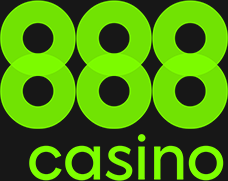
Kalshi, the fast-growing prediction markets platform known for letting users trade on real-world outcomes, may be preparing to take a bold step into the United States’ iGaming sector. Kalshi could be exploring the development of a “casino-like product,” marking what would be its first foray into the world of interactive gaming. For a company that has so far operated outside traditional gambling frameworks, the pivot could prove transformative.
While nothing is confirmed, a future Kalshi Casino might look very different from traditional online casinos. The platform could capitalize on its expertise in real-time event trading, turning predictions on short-term outcomes into interactive wagering experiences that feel both financial and game-like. That includes economic data, entertainment results, or even market indicators.
Already, Kalshi offers hourly markets on economic indicators, and FanDuel is exploring a similar format in partnership with CME Group. This convergence between financial prediction and interactive entertainment could redefine how players engage with risk, timing, and reward.
The appeal is undeniable. iGaming remains one of the most profitable verticals in global wagering. On a gross gaming revenue (GGR) basis, industry experts estimate the U.S. online casino market could reach $100 billion if legalized across all 50 states, easily surpassing sports betting in margin and profitability.
The Regulatory Reality
Kalshi’s challenge is unique: the company has long maintained that it operates prediction markets, not gambling platforms. As such, it does not hold gaming licenses in any U.S. state. That distinction has helped it avoid sports betting restrictions, but it has also sparked legal disputes with state regulators seeking to define where prediction trading ends and gambling begins.
If the company does pursue a casino-style offering, experts say it is unlikely to resemble the products offered by BetMGM, DraftKings, or FanDuel. Instead, the company might experiment with something hybrid. These could be achieved by merging its real-world event markets with short-duration, binary outcomes that mirror the high-speed engagement of iCasino experiences.
Despite the massive opportunity, pushback from regulators, courts, and Congress could be significant. And broader market conditions are not helping. After a wave of legislative momentum in 2023, iGaming expansion has stalled. Six states debated bills last year with no approvals, and Indiana recently shut down its 2025 proposal. Many experts now believe Florida could be the only new state to approve online casino play before 2027.











